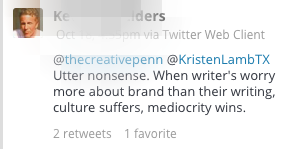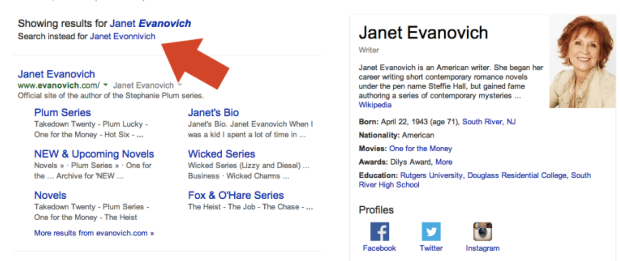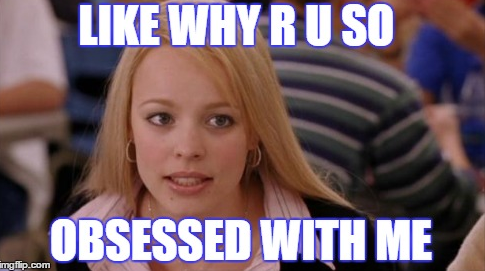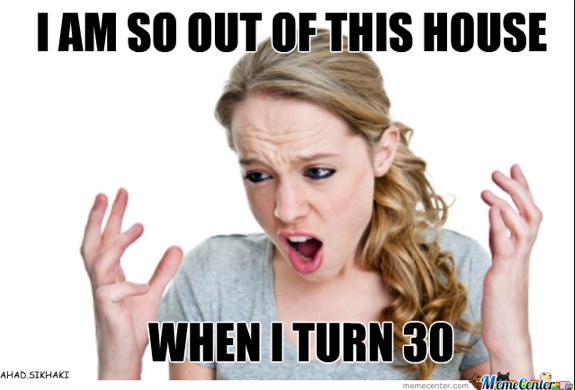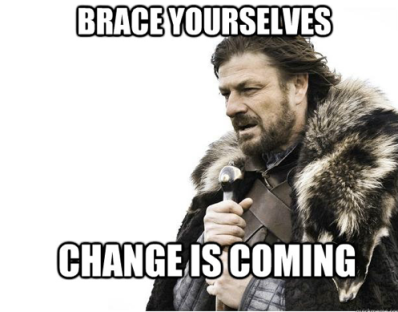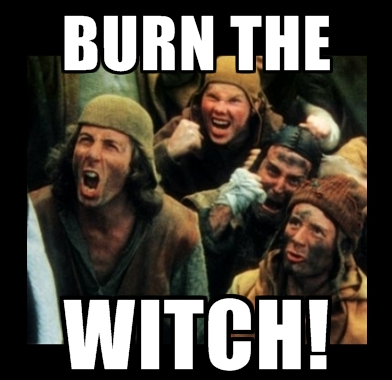Archive for category Social Media Platform
3 Ways to Reignite Your Writing Career TODAY!
Posted by Author Kristen Lamb in Social Media Platform, Uncategorized on September 28, 2016
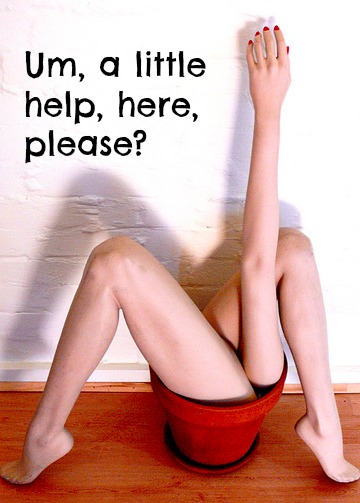
Image via Flickr Creative Commons, courtesy of Sally Jean
Man, I have missed you guys! Spawn flattened me with a stomach bug #kidsarecutebutevil. But, I am back so let’s get to work. All of us have days where we wonder if what we do even matters. Why did we have to become writers? Especially in these times?
Why couldn’t we have gotten into this gig when wealthy patrons financed our work? And we could seal our manuscript with a fancy wax seal like the kind we bought for ourselves at Barnes & Noble but are too shy to use on our water bill?
I know y’all bought one too, and for those who didn’t, is that a quill and ink set from the Renaissance festival I detect? Do I smell parchment?
Ah the good old days…
I am an “Old Dog” of the digital publishing paradigm. I’ve been through all the fads. The FREE BOOK Rush of 2010, The Great .99 Book Deal of 2011, The Amazing Algorithmic Alchemy, The Magical Metrics and the Automation Invasion of 2012-2015 (there are still skirmishes along the front). Now I am enduring The Newsletter is Gold Rush.
Guess what? I’m still here.
I don’t say this really to brag as much as to make a point. Social media, done properly is not a short-term burst of gimmicky energy. There is no magic to it and it while it is simple, that doesn’t mean it’s easy. We not only have to manage the brand, we also produce the product.
Not a job for the faint of heart.
And with all the tweeting and blogging and slogging month after month and year after year, I know that it is SUPER easy for us writers to get overwhelmed. That’s why today, I’m here to offer some simple ways to inject fire back into your writing and your career.
*plays Eye of the Tiger loudly* *punches at the air*
#1—Appreciate that Writing & Social Media Branding Can Coexist
When I am on Twitter, I often get tweets like these:
Guess what? I agree! The writing always, always comes first.
But why is there an almost automatic assumption we must choose?
Social media, done the way I teach in Rise of the Machines, takes maybe 10-15 minutes a day and feel free to take off weekends. I offer no get-rich-quick advice. My author platforms take time (and discipline) to build, but they are virtually indestructible. It isn’t about quantity, it is all quality and then being consistent.
If we assume that platform-building is this awful horrible time-intensive thing? Then we psych ourselves out of some truly fantastic benefits. Additionally, our own misconception how much time social media takes can be smothering our creative fires.
But that is a lie. Solid branding/platform-building isn’t about large chunks of time, rather it is small consistent effective action. I can assure you, it is very possible to write books and be on social media.
Just like we can bathe and brush our teeth. No need to choose 😉 .
#2—RELAX Regarding Sales
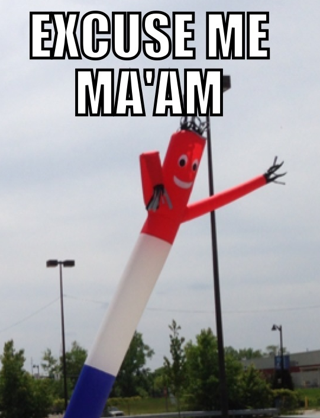
AHHHHHHH!
For those who want to make a living as an author, appreciate we are in the entertainment business. Note that half that word is business. We are in the business of selling books. Yet how many of you are feeling snuffed out simply because you are terrified of sales?
Guess what?
You already ARE IN SALES.
Because writing a novel is nothing BUT sales. Every aspect from the cover to the title to the concept to every stinking page of writing (just in writing we call them “hooks”). Why do readers stop reading? Because we didn’t “sell” them on the idea of turning to the next one.
Great writers are able to sell the idea that is a better idea to stay up until 2 a.m. than getting to work on time 😉 .
In fact, I think novelists make up the greatest salespeople in human history. Writers have sold us on equal rights, women’s rights, alien worlds, space travel, a thing called a T.A.R.D.I.S. and on and on.
Think about it. Writers have to sell readers on an idea. Why should we spend 10-15 hours reading that story? How are we supposed to believe that sparkling vampires are plausible? Or in this place called Middle Earth?
Writers need to sell readers on characters. Why should we like her? Root for her? Why should we fear/hate him and want him to lose?
Additionally, every single traditionally published author has had to first sell themselves and a manuscript to an agent. Once published, these same authors most often are then required to then sell the next story and the next to an editor or agent via a synopsis of whatever else they have to offer (which is why I have a CLASS on how to do that this Friday).
So let’s just get this notion out of our head that all “sales” is the same and involves vitamins or vacuums. Y’all already rock sales if you write good stories, so ditch the phobia already.
#3—Reframe Perception of Social Media

Original image via Flikr Creative Commons courtesy of GUV’NOR.
Part of embracing the new type of work we must do as digital age writers comes with redefining how we see our work (which now includes a degree of social media). Feel free to get on Facebook and trudge through it like some chore, but with that kind of an attitude? I recommend just staying off altogether. We (readers) can sense a poor attitude through the screen.
It is one of the reasons automation is such a turn-off. It shouts, “I want your time and money but I am too busy to talk to you!” And, to be blunt, it’s the equivalent of junk mail.
Junk mail has a 2% return on investment, so if we want better results than a telemarketer, we need to relax about getting engaged.
If you are struggling with enjoying social media, maybe this will help.
I was once on a panel at Thrillerfest in NYC and we were asked, “What is the most important thing to do to be successful of social media?” The edgy blogger next to me snagged the mic and declared, “You must be interesting.”
I disagreed.
My POV? It is far better to be interested than interesting.
Why do readers love our stories? Because if we have done our job well, on some level the story we write is also the reader’s story. It is about them. Same with social media.
We are not organ-grinding monkeys dancing for loose change and, in fact, the non-stop-entertainment-approach will wear everyone out in a hurry. Never underestimate the power of simply liking or commenting on the posts of others. Or asking an opinion or a thought. Humans are dying to feel heard, so do what introverts do best and simply listen.
What are your thoughts? Do you psych yourself out when it comes to branding and social media? Do you think you need to do everything? Do you see how social media can allow you to take simple steps to fire up your future? What are some ways you add some mojo back into your routine?
I LOVE hearing from you!
To prove it and show my love, for the month of SEPTEMBER, everyone who leaves a comment I will put your name in a hat. If you comment and link back to my blog on your blog, you get your name in the hat twice. What do you win? The unvarnished truth from yours truly. I will pick a winner once a month and it will be a critique of the first 20 pages of your novel, or your query letter, or your synopsis (5 pages or less).
Check out the other NEW classes below! Including How to Write the Dreaded Synopsis/Query Letter THIS FRIDAY! I have also included new times to accommodate the UK and Australia/NZ folks!
All W.A.N.A. classes are on-line and all you need is an internet connection. Recordings are included in the class price.
Upcoming Classes
NEW CLASS!
Friday! Pitch Perfect—How to Write a Query Letter & Synopsis that SELLS
You’ve written a novel and now are faced with the two most terrifying challenges all writers face. The query and the synopsis.
Query letters can be daunting. How do you sell yourself? Your work? How can you stand apart without including glitter in your letter?
***NOTE: DO NOT PUT GLITTER IN YOUR QUERY.
Good question. We will cover that and more!
But sometimes the query is not enough.
Most writers would rather cut their wrists with a spork than be forced to write the dreaded…synopsis. Yet, this is a valuable skills all writers should learn.
WEDNESDAY October 5th Your Story in a Sentence–Crafting Your Log-Line
Log-lines are crucial for understanding the most important detail, “WHAT is the story ABOUT?” If we can’t answer this question in a single sentence? Brain surgery with a spork will be easier than writing a synopsis. Pitching? Querying? A nightmare. Revisions will also take far longer and can be grossly ineffective.
As authors, we tend to think that EVERY detail is important or others won’t “get” our story. Not the case.
If we aren’t pitching an agent, the log-line is incredibly beneficial for staying on track with a novel or even diagnosing serious flaws within the story before we’ve written an 80,000 word disaster. Perhaps the protagonist has no goal or a weak goal. Maybe the antagonist needs to be stronger or the story problem clearer.
In this one-hour workshop, I will walk you through how to encapsulate even the most epic of tales into that dreadful “elevator pitch.” We will cover the components of a strong log-line and learn red flags telling us when we need to dig deeper. The last hour of class we will workshop log-lines.
The first ten signups will be used as examples that we will workshop in the second hour of class. So get your log-line fixed for FREE by signing up ASAP.
Those who miss being in the first ten will get a deeply discounted workshop rate if they would like their log-line showroom ready.
SATURDAY, October 8th Blogging for Authors
Blogging is one of the most powerful forms of social media. Twitter could flitter and Facebook could fold but the blog will remain so long as we have an Internet. The blog has been going strong since the 90s and it’s one of the best ways to establish a brand and then harness the power of that brand to drive book sales.
The best part is, done properly, a blog plays to a writer’s strengths. Writers write.
The problem is too many writers don’t approach a blog properly and make all kinds of mistakes that eventually lead to blog abandonment. Many authors fail to understand that bloggers and author bloggers are two completely different creatures.
This class is going to cover:
- How author blogs work. What’s the difference in a regular blog and an author blog?
- What are the biggest mistakes/wastes of time?
- How can you effectively harness the power of algorithms (no computer science degree required)
- What do you blog about? What topics will engage readers and help create a following?
- How can you harness your author voice using a blog?
- How can a blog can help you write leaner, meaner, faster and cleaner?
- How do you keep energized years into your blogging journey?
- How can a blog help you sell more books?
- How can you cultivate a fan base of people who love your genre.
Blogging doesn’t have to be hard. This class will help you simplify your blog and make it one of the most enjoyable aspects of your writing career.
For those who need help building a platform and keeping it SIMPLE, pick up a copy of my latest social media/branding book Rise of the Machines—Human Authors in a Digital World on AMAZON, iBooks, or Nook.
Does FB Sell Books & Do Writers Need a Facebook Fan Page?
Posted by Author Kristen Lamb in Social Media Platform on September 14, 2016
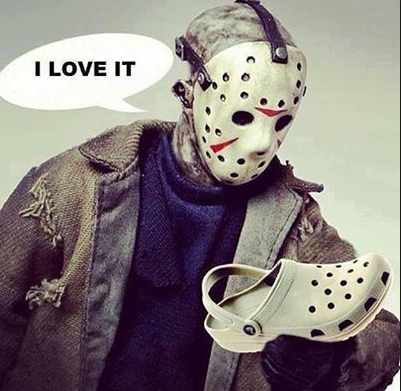
Social media is powerful for connecting us (our books) with the very people we wrote them for to begin with. But, we are wise to appreciate that creating a brand and cultivating genuine and passionate fans is not going to happen overnight. The deeper the roots, the stronger the brand and the platform.
Why that is important is if we keep chasing the newest shiny, we fail to ever gain compounding results. We are chasing fad after fad. Thus a saner approach is to build places that are the most stable.
***Yes, we can build on Instagram and SnapChat and the like, but that will come with more risk and possibly devour time we need to write more books.
The blog is still the strongest and most resilient form of social media. Blogs have been around since the 90s and unless the Internet goes down? Blogs will remain.
But other than a blog (at least for the moment) Facebook is the next strongest and most resilient. I recommend Facebook because I come from sales and in sales we had a saying: Fish where the fish are.
The readers fish are schooling on Facebook.
But here is where I often get a disconnect with writers. The first thing I often hear is Facebook doesn’t sell books!
And this statement is both correct and incorrect.
ALL social media is horrible for direct sales. Why?
It isn’t the place for it.
Trying to conduct direct sales on social media is akin to me showing up to a friend’s BBQ and toting in a portable table, boxes of books and a cash box then setting up shop next to the potato salad.
It’s rude. I would be invading that social space with a selfish agenda.
However, this doesn’t mean that going to the BBQ is completely useless for book sales. As I talk and chat with people and they find out I am a writer, they get to know me (hopefully like me) and this sparks curiosity and interest that could likely turn into a sale.
Additionally, if the person likes my book, there is a far deeper loyalty because I am the author they are “friends” with.
Facebook Doesn’t Does Work
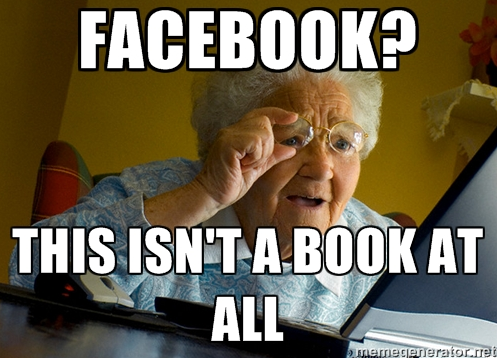
Facebook, like a hairdryer, a screw driver or a jack hammer is a tool. Just because we are not getting the results we want doesn’t mean there is something wrong with the tool. We have to know how it works and how to use it for the results we desire.
We first need to understand the purpose of the fan page and this is where it can get sticky.
I do not recommend brand new authors with nothing yet for sale to have a fan page. First you don’t need one since you are not yet conducting any business. Secondly, it’s a formula to want to overdose on tequila and cookie dough when the only “fans” you have after three months are your mother and ten friends from your kids’ Aqua Tot class.
Building a fan page this way is excruciatingly difficult. This is why I recommend building your personal page first.
Your personal page is the foundation that will later support the fan page.
It can help you get to know people, and they get to know you and that you are a writer. Once you hit a couple thousand “friends” you can then build your fan page OFF your personal page.
This holds many advantages.
First, it makes navigation simple. You can simply switch back and forth across the two pages. Here is the view from the top of my personal page. I can switch easily and see if I have messages, etc.

Also, because folks have spent months getting to know us on the personal page, it is far easier to post a message:
Hey, finally getting an author page. Would you mind giving it a “like”?
The personal page has a lot more ability to socialize with others and this is the place you do the bulk of your initial networking.
Of course, you might now be asking, “Then why do we need a fan page at all?” Good question.
Why DO We Need a Fan Page?
YES. And the reason is that Facebook is very strict about keeping business and socialization separate. Now, this doesn’t mean we are the “all-selling-books-all-the-time-channel” on the fan page, then we only act like a human being on the personal page.
It only means that we cannot conduct commerce on a personal page without risking Facebook deleting our profile for violating the Terms of Service.
We CAN, however, post about books or classes for sale and promote them on a fan page. That is the purpose of the fan page.
Additionally, as your platform and fan following grows, eventually you will need a page that can accommodate over 5,000 people. A great problem to have, btw 😉 .
We DO NOT Need to Pay to Promote

A few months ago I attended a conference where I was not speaking, but I do enjoy learning from others so I attended the social media class.
*bangs head on wall*
This particular “expert” was busy scaring the bejeezus out of authors and telling them they needed to go to LinkedIn instead because no one sees your content unless you fork out cash to Facebook.
That was patently false.
We have to understand how Facebook chooses what goes in anyone’s newsfeed. Facebook runs the same way search engines do. They use algorithms to make sense of our behavior and give us more of what we interact with and less of what we ignore (because it assumes it is of no interest).
This holds true for the personal page and the fan page.
Recently, I posted a picture of my nephew on my personal page. I then got a distraught message from my aunt. All the other family members had gotten the image in their newsfeeds, but she did not. She was worried she’d offended me and I’d somehow blocked her.
I assured her it was not the case.
What happened was this aunt was very passive on Facebook. She never hit the like button or shared anything I posted (unlike other family members). Over time, FB assumed she was not interested so it no longer offered my content in her feed.
I told her that all she had to do to fix this was go to my Timeline and click like on a few things and maybe leave a comment or two and the algorithm should correct.
So Why Do Some Have to Pay?

Why authors end up having to pay to promote is they are failing to appreciate how algorithms work and are choosing content that does not work in their favor.
They are using the fan page for direct sales and people don’t want that. They post a lot of BUY MY BOOK and talk about upcoming releases and book covers and events which is all fine within reason, but that is ALL they are sharing.
Most people will just scroll past and they aren’t likely to interact with that kind of content, let alone share it.
The fan page is still supposed to be social. The only difference is that we are allowed a book table at the back of the room without offending anyone.
What happens though is that writers keep posting content no one is interested in engaging with. How Facebook tries to help is it offers us the ability to pay to alter the algorithm back in our favor.
But mind you, we can do this for FREE on our own simply by engaging and acting much the same way as we did on our personal page. I regularly get over 80% engagement and I have never paid Facebook a dime.

NYTBSA Lisa Gardner has an excellent fan page. Yes, she talks about her books, has everything easy to see and buy but she also talks about all kinds of other things that gets people talking and sharing and engaging. Ann Rice is another author who ROCKS the fan page. Same with Jonathan Maberry.
By the time we are spending the lion’s share of our time on our fan page, we really are there for true fans so we get more leeway how much we mention books. But notice even ANN RICE still talks about ballet and recipes and feel-good stories. She isn’t the BUY MY BOOK channel.
There is a lot more to using Facebook for advantage, but we have to get these basics first or we will just end up frustrated. Once we understand how Facebook gets content in front of our audience, we can then adjust our behaviors to offer us the advantage.
Does this help? Were you getting frustrated with your fan page? For the newer writers, are you happy you don’t have to rush out and get a fan page today? I recommend looking at authors who do the fan page well and learning from them. No need to reinvent the wheel!
I LOVE hearing from you!
To prove it and show my love, for the month of SEPTEMBER, everyone who leaves a comment I will put your name in a hat. If you comment and link back to my blog on your blog, you get your name in the hat twice. What do you win? The unvarnished truth from yours truly. I will pick a winner once a month and it will be a critique of the first 20 pages of your novel, or your query letter, or your synopsis (5 pages or less).
Check out the other NEW classes below! Including How to Write the Dreaded Synopsis/Query Letter!
All W.A.N.A. classes are on-line and all you need is an internet connection. Recordings are included in the class price.
Upcoming Classes
NEW CLASS!
Pitch Perfect—How to Write a Query Letter & Synopsis that SELLS
You’ve written a novel and now are faced with the two most terrifying challenges all writers face. The query and the synopsis.
Query letters can be daunting. How do you sell yourself? Your work? How can you stand apart without including glitter in your letter?
***NOTE: DO NOT PUT GLITTER IN YOUR QUERY.
Good question. We will cover that and more!
But sometimes the query is not enough.
Most writers would rather cut their wrists with a spork than be forced to write the dreaded…synopsis. Yet, this is a valuable skills all writers should learn.
Sign up early for $10 OFF!!!
Bullies & Baddies—Understanding the Antagonist September 2nd–September 16th
All fiction must have a core antagonist. The antagonist is the reason for the story problem, but the term “antagonist” can be highly confusing. Without a proper grasp of how to use antagonists, the plot can become a wandering nightmare for the author and the reader.
This class will help you understand how to create solid story problems (even those writing literary fiction) and then give you the skills to layer conflict internally and externally.
Bullies & Baddies—Understanding the Antagonist Gold
This is a personal workshop to make sure you have a clear story problem. And, if you don’t? I’ll help you create one and tell the story you want to tell. This is done by phone/virtual classroom and by appointment. Expect to block off at least a couple hours.
Your Story in a Sentence—Crafting Your Log-Line
September 7th
Log-lines are crucial for understanding the most important detail, “WHAT is the story ABOUT?” If we can’t answer this question in a single sentence? Brain surgery with a spork will be easier than writing a synopsis. Pitching? Querying? A nightmare. Revisions will also take far longer and can be grossly ineffective.
As authors, we tend to think that EVERY detail is important or others won’t “get” our story. Not the case.
If we aren’t pitching an agent, the log-line is incredibly beneficial for staying on track with a novel or even diagnosing serious flaws within the story before we’ve written an 80,000 word disaster. Perhaps the protagonist has no goal or a weak goal. Maybe the antagonist needs to be stronger or the story problem clearer.
In this one-hour workshop, I will walk you through how to encapsulate even the most epic of tales into that dreadful “elevator pitch.” We will cover the components of a strong log-line and learn red flags telling us when we need to dig deeper. The last hour of class we will workshop log-lines.
The first ten signups will be used as examples that we will workshop in the second hour of class. So get your log-line fixed for FREE by signing up ASAP.
Blogging for Authors
September 17th
Blogging is one of the most powerful forms of social media. Twitter could flitter and Facebook could fold but the blog will remain so long as we have an Internet. The blog has been going strong since the 90s and it’s one of the best ways to establish a brand and then harness the power of that brand to drive book sales.
The best part is, done properly, a blog plays to a writer’s strengths. Writers write.
The problem is too many writers don’t approach a blog properly and make all kinds of mistakes that eventually lead to blog abandonment. Many authors fail to understand that bloggers and author bloggers are two completely different creatures.
For those who need help building a platform and keeping it SIMPLE, pick up a copy of my latest social media/branding book Rise of the Machines—Human Authors in a Digital World on AMAZON, iBooks, or Nook.
Ads are NOT a Brand and Promotion is NOT Platform—Understanding the Difference
Posted by Author Kristen Lamb in Blogging, Social Media Platform on August 26, 2016

Image via Flickr Creative Commons courtesy of Ken.
Very often when I write about brand and platform, writers assume I am talking about promotion and marketing (ads) and that is not only a false assumption, it can be a fatal one. When we hop onto Twitter or Facebook and are barraged with book spam, a big reason it annoys us (though not the only) is because the author is engaging in these activities with no solid brand or platform.
It then either becomes white noise (invisible) or worse an irritation (negative branding). Writers trying to create a brand by serving up copious book promotion will have a brand all right. The brand of self-serving asshat.
The sight of the author’s face or book might even be enough to spike our blood pressure. We are far more likely to block than buy.
Why? What went wrong?
We have to look at what a brand actually IS.
What’s in a Name?

Image via Flickr Creative Commons courtesy of Pierre Lognoul
The formula for a brand is simple:
NAME + PRODUCT + EMOTIONAL EXPERIENCE
The last part is critical. In fact it might be the most critical.
Why do you think corporate empires pay so much for image consultants? Sure, Mylan once had a great reputation as a pharmaceutical company until they got greedy and decided to line their pockets at consumers’ expense.
Three years ago if we heard the term “epi-pen” we might have experienced good emotions. Oh it is a life-saving drug. Helping kids with peanut allergies. My cousin had an epi-pen and it saved her life.
Nowadays? Different story. Once we found out the top execs have been giving themselves HUGE pay raises while hiking the cost of the only drug of this kind from $100 in 2007 to over $600 today?
Consumers are now seeing RED.
Seriously all it will take is one competitor to offer something comparable and it might just be enough to bury Mylan because greed is now part of their brand. That will be a tough stain to remove.
Even though they had an amazing product, they took advantage of having a monopoly and fattened their paychecks. I don’t know if there is a PR firm who can ever undo that damage. I’m fairly sure they’re going to be relegated to the Food Lion Dimension of Shame.
This example is to point out how important emotional experiences with a brand can be, that it has never been just the product.
It isn’t just about a good book anymore.
Why Are Brands So Important?
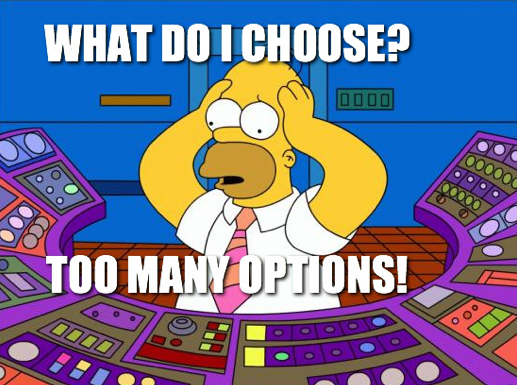
Most of us don’t have time to research each and every purchasing decision and thus, we as consumers, are prone to rely heavily on brands. Brands let us know what to expect.
When we buy Dolce & Gabbana shoes, we expect a certain quality. We go off the name and do far less inspecting and road-testing than we would for a designer/manufacturer we’d never heard of.
We are willing to order ahead of time and pay full price and even ridiculous prices for Coach, Ralph Lauren, Prada, Versace, Harley Davidson, Porsche, BMW, Mac Computers, John Deer, etc. So on and so forth.
Starbucks is hardly the best coffee, yet they’ve become almost synonymous with “coffee.” They also have branded a “coffee experience.”
But all of these companies (brands) did the same thing. They began with a name. Of course the name means nothing without a product. The name Harley Davidson would be just a name unless it came with motorcycles. But a name and a product alone are not enough.
Harley Davidson then had to go about crafting a unique emotional experience that was unlike its competition.
All of these brands we love have something in common, though. They built the brand and the platform first. Then any advertising or promotion is already advertising an existing brand. When we get a flyer that Levis are on sale, we know what Levis are. How do we know what they are? Levis is a brand.
All of these companies also have a platform.
What is a Platform?

Image via Flickr Creative Commons courtesy of Alex Santosa.
Platform is tethered inextricably with brand. If brand is the product, then platform consists of those most likely to consume that product because they emotionally identify with the brand.
Trust me, Harley Davison is not worried about consumers who love Vespas. Sure, they are both motorized bikes, but they are selling vastly demographics and experiences.
Authors are doing the same.
We know who Stephen King is because of his brand. Because of his brand (tons of books) we know if we are part of his platform or we aren’t. If we are the type of reader who loves a sweet romance? King isn’t trying to court us. Why? We might know his brand, but we are not part of his platform.
In the old days, there was only one way to create a brand (and consequently a platform) and that was the books. Lots and lots of books (brand) cultivated a body of people who liked our writing/voice (platform). Today that is still a great plan. With so much junk floating around, when readers find a writer they enjoy, they stick like glue.

Image via Flickr Creative Commons, courtesy of Craig Sunter
This is one of the main reasons that we need to keep writing. Stop promoting ONE book. ONE book is not enough to create a strong brand/platform.
Remember:
A brand is a collection of emotional experiences.
A platform is simply those who will enjoy that experience.
Modern writers hold the advantage here.
Before the digital age, it was practically impossible to create a brand outside of the books, because the book was the only source of emotional experiences with the author.
Readers rarely had contact with an author beyond the books. Book signings, maybe magazine or radio interviews gave only slight glimpses of the author beyond the book. Today, with social media? That is no longer the case. Every blog, tweet, post, video and interaction serve to create the overall brand.
This is how bloggers like Jenny Lawson (The Bloggess) were able to become runaway successes. Lawson already had a huge fan base from her blogs and her Twitter following before the first book was ever released.
Since we are writers our product is our words. This is how blogging can become such a vital part of our brand. But beyond that, it is also going out on social media (platform of your choice) and connecting. Create a positive emotion that goes hand in hand with our name.
Hint: Spamming the crap out of people does NOT create a positive experience.
Write More Books
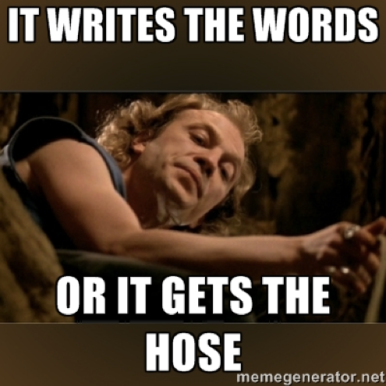
Thus, whenever I mention building a brand/platform I’m in no way talking about promoting or advertising. Those are separate activities that come later and their success will rest largely on how well we’ve done our job with the brand/platform.
Once we realize this, we can breathe easier and know it is OKAY to keep writing books even if we have no mega-super-duper promotion/marketing/advertising campaign for that first book. It is okay to blog or even just hang out on social media connecting. That is a VITAL part of our job and if we skip it, then any marketing later will fall on deaf ears. In fact premature promotion can actually harm or even KILL a brand.
So relax 😀 .
What are your thoughts? Do you feel a little better that you don’t need to rush out with an ad campaign? Did this clear up the differences in brand and platform versus promotion?
I LOVE hearing from you!
To prove it and show my love, for the month of AUGUST, everyone who leaves a comment I will put your name in a hat. If you comment and link back to my blog on your blog, you get your name in the hat twice. What do you win? The unvarnished truth from yours truly. I will pick a winner once a month and it will be a critique of the first 20 pages of your novel, or your query letter, or your synopsis (5 pages or less).
Check out the other NEW classes below! Now including a log-line class! Can you tell me what your book is about in ONE sentence? If you can’t SIGN UP.
All W.A.N.A. classes are on-line and all you need is an internet connection. Recordings are included in the class price.
Upcoming Classes
Bullies & Baddies—Understanding the Antagonist September 2nd–September 2nd
All fiction must have a core antagonist. The antagonist is the reason for the story problem, but the term “antagonist” can be highly confusing. Without a proper grasp of how to use antagonists, the plot can become a wandering nightmare for the author and the reader.
This class will help you understand how to create solid story problems (even those writing literary fiction) and then give you the skills to layer conflict internally and externally.
Bullies & Baddies—Understanding the Antagonist Gold
This is a personal workshop to make sure you have a clear story problem. And, if you don’t? I’ll help you create one and tell the story you want to tell. This is done by phone/virtual classroom and by appointment. Expect to block off at least a couple hours.
Your Story in a Sentence—Crafting Your Log-Line
September 7th
Log-lines are crucial for understanding the most important detail, “WHAT is the story ABOUT?” If we can’t answer this question in a single sentence? Brain surgery with a spork will be easier than writing a synopsis. Pitching? Querying? A nightmare. Revisions will also take far longer and can be grossly ineffective.
As authors, we tend to think that EVERY detail is important or others won’t “get” our story. Not the case.
If we aren’t pitching an agent, the log-line is incredibly beneficial for staying on track with a novel or even diagnosing serious flaws within the story before we’ve written an 80,000 word disaster. Perhaps the protagonist has no goal or a weak goal. Maybe the antagonist needs to be stronger or the story problem clearer.
In this one-hour workshop, I will walk you through how to encapsulate even the most epic of tales into that dreadful “elevator pitch.” We will cover the components of a strong log-line and learn red flags telling us when we need to dig deeper. The last hour of class we will workshop log-lines.
The first ten signups will be used as examples that we will workshop in the second hour of class. So get your log-line fixed for FREE by signing up ASAP.
For those who need help building a platform and keeping it SIMPLE, pick up a copy of my latest social media/branding book Rise of the Machines—Human Authors in a Digital World on AMAZON, iBooks, or Nook.
The Problem with Pen Names
Posted by Author Kristen Lamb in Social Media Platform, Writing Tips on August 24, 2016

When I first became a writer, one of my favorite activities was dreaming what my pen name would be. I’d even practice signing it so that, you know, I didn’t accidentally scribble Kristen Lamb in my runaway best-selling book at my glamorous book signing.
Don’t judge me. Y’all did it too 😛 .
Before anyone gets in a fluff, understand two things. First, I’m on your side. If you want or need a pen name? Rock on! If you already have one? Keep it! If a sexy exotic name makes you write better stories? Go for it!
This is only a decision the author can make. My only goal here is to make sure y’all are making educated business decisions. Thus, I won’t stop anyone from having a pen name, but about 95% of the time? They’re unnecessary.
The modern author already has to take on far more than simply writing, so why volunteer for more work?
In my opinion? Pen names are more hassle than they are worth and they’re a fast way to land in Crazyville. Pen names used to offer benefits, but most of those benefits have evaporated because the world is digital and connected. In fact, pen names can actually hurt book sales and stall a platform and brand.
Let’s look at some of the advantages pen names used to offer that no longer exist.
I Need a Pen Name for PRIVACY
Here’s the thing. We are in The Digital Age. Privacy is an illusion. In fact, be too private and we fail to connect emotionally with others and thus the platform and brand never gain traction. Social media is social and being social requires a certain level of vulnerability and openness.
Being open and vulnerable doesn’t mean we post our Social Security Number and the names of all our kids. It can be something as simple as, “Hey, I totally dig Dr. Who” or “I like to crochet weapons of mass destruction.”

Some writers don’t want to do social media at all or they want to hide behind a pen name and only post “writerly things” or “BUY MY BOOK!” because, yeah, that is SUPER creative and we don’t already get enough of that *rolls eyes*.
They don’t want to share anything personal and the pen name is there to help them gain emotional distance and keep their “lives separate.”
The problem with this thinking is that, in The Digital Age, WE ARE THE BRAND.
Before The Digital Age, gatekeepers stemmed the number of books that came to market. Readers only could buy what they discovered browsing a bookstore. Now that there are millions of titles and more being added every day? Those habits and hobbies no one cared about in 1995 are what’s going to help us cultivate our readership. Readers buy from who they know and who they like.
When we try to separate our personal persona from our writing persona, we create layers of friction and a lot of extra work for those trying to discover our books.
This means we can inadvertently undermine our own success seeking the illusion of anonymity/privacy.
I Need a Pen Name to HIDE

Erotica authors generally run into this problem. If what you write might cost you your job? Then yes, I agree a pen name is probably a good idea. It will be extra work, but y’all probably already knew that. What I DON’T like is often writers believe that just using another name is enough.
No.
First, if you require a pen name for safety, security, etc. hire a pro. I recommend The Digital Dark Knight Jay Donovan at Tech Surgeons. Tell him I sent you and he will give you special rates. If we are just creating social sites under a made up name and thinking this keeps us “safe”? This is akin to locking the screen door to keep out serial killers.

If someone is motivated to find us, they can (unless you hire a pro like Jay).
You will probably have to look into the legal aspects of using another name and will likely require a DBA (Doing Business As) because, if you have any amount of success, you will need to be able to cash the check under another name, do taxes, etc.
Also, I will say that having to hide an identity is very stressful. Sites like Facebook use facial recognition software for tagging photos and then those photos are searchable.
All it takes is a friend carelessly posting a photo and tagging with the wrong name to implode a carefully crafted alter ego.
As more social networks communicate across platforms and search engines become more ingrained and more advanced, hiding will get harder and harder.
I Need a Pen Name for Each Genre
NO! For the love of all that is chocolate, NO!
Remember, WE ARE THE BRAND. You guys come to my blog and trust I will work hard and deliver enjoyable content. This means when I have a book out, there is less work or thinking on your part. You know me, hopefully like me and you trust my work.
My name holds a lot of power because it promises to deliver content you enjoy. I write social media books, but I also…wait for it…write fiction.
Did anyone’s reality just fracture?
People “get” we do more than one thing. In fact, those who like my blogs or social media books, might just decide to read my fiction simply because they already trust my non-fiction. With SO many choices out there, we find a writer we like and stick like glue. We don’t want the hassle of trying and testing an unknown.
Readers don’t only read one genre. In fact, I think that is probably fairly rare.
When we use a pen name for another genre, we are back at Ground Zero. We have to build another name without any help from the already existing platform.
I finally sent off my mystery-thriller to the publisher. When that sucker goes to market? I am NOT motivated enough to start ALL OVER. If my followers don’t like stories about murder and cartels? Don’t buy my book. Simple. But, there may be people who might just try a thriller because it’s written by me.
*cute face*
It Doesn’t Take Much to Implode an Identity
I once had a writer in my branding class who was using a pen name because her family is less than supportive and they trolled her other sites when she tried to use her real name. But what if she becomes successful and crazy family member figures out the pen name and starts trolling that site? Eventually this writer will have to put down a boundary.
Troll my site one more time and you will die in a tragic blow-up doll accident in my next novel.
She is costing herself a TON of extra work to cater to a handful of bullies. She’s losing all those close connections—schoolmates, college friends, colleagues, etc.—who actually will be her best word of mouth sales. I have people who didn’t say three words to me in high school who are now avid fans because I’m the writer they KNOW.
My Name is Too Hard to Pronounce or Spell
NO! That name no one has gotten right since you were a kid is now your digital BFF. If you don’t believe me? Google Janet Evonnivich.
I see authors with AWESOME names for the Digital Age change it to something utterly forgettable. If your name is Skjolsvik, I don’t have to know how to pronounce it, I just have to be able to recognize it in a lineup. Also, all I have to remember is it starts with Skj—.
Search engines will correct me if I goof it.
I Need a Pen Name Because There is Another Person With My Name
Again, search engines can help with this. Do y’all really think I am the ONLY Kristen Lamb? When I decided to set aside fiction to become the social media expert for writers, I began by googling my name. There was another Kristen Lamb who happens to be a media mogul.
But by producing a LOT of content and properly tagging that content, I now dominate the search for my name. And, even if I didn’t? If someone is searching my name for my blog/books and they get Kristen Lamb the Cake Decorator, all they have to do is add the word “writer” to narrow the search.
I Need a Pen Name Because Using My Name is Pretentious
I hear new writers say this a lot. Why would anyone care what I have to say? They don’t. When I was new, they didn’t care what I had to say, either. But being a writer is fundamentally pretentious and even narcissistic. We have to believe we have something to say that is worth not only reading, but PAYING to read.
Just own it.
And if we pan back, this entire argument is more than a tad ridiculous. So no one would care what Kristen Lamb has to say, but they WILL care what Kristen Lamb writing as an imaginary person and figment of her own imagination has to say? And that isn’t pretentious?
It is YOUR Decision
In the end, all I can do is give you branding and social media advice. Multiple names and pen names are a lot of work that is very often unnecessary. I see writers do this same thing with multiple blogs.
I blog about writing but I also blog movie reviews and funny anecdotes. What if my followers who like my writing posts don’t like kitten stories?
Um, they don’t read your post that day?
I write thrillers, but I also write cozy romance. What if my readers don’t like cozy romance?
Um, they don’t buy them?
If you require a pen name for safety issues, legal issues or even because it could endanger your job? TALK TO JAY. The rest of us? Our time is better spent writing more books 😉 .
What are your thoughts? Questions? Experiences? Do you have a pen name and love it? How do you manage that pen name without going cray-cray? Did you start out with a pen name and now you regret it? Do you have multiple names you now need to merge? I can actually blog about ways to do that another time.
I LOVE hearing from you!
To prove it and show my love, for the month of AUGUST, everyone who leaves a comment I will put your name in a hat. If you comment and link back to my blog on your blog, you get your name in the hat twice. What do you win? The unvarnished truth from yours truly. I will pick a winner once a month and it will be a critique of the first 20 pages of your novel, or your query letter, or your synopsis (5 pages or less).
Check out the other NEW classes below! Now including a log-line class! Can you tell me what your book is about in ONE sentence? If you can’t SIGN UP.
All W.A.N.A. classes are on-line and all you need is an internet connection. Recordings are included in the class price.
Upcoming Classes
Blogging for Authors (August 26th)
This class will teach you all you need to know to start an author blog good for going the distance. Additionally I would also recommend the class offered earlier that same week (August 22nd) Branding for Authors to help you with the BIG picture. These classes will benefit you greatly because most blogs will fail because writers waste a lot of time with stuff that won’t work and never will and that wastes a lot of time.
I am here to help with that 😉 .
Bullies & Baddies—Understanding the Antagonist September 2nd–September 2nd
All fiction must have a core antagonist. The antagonist is the reason for the story problem, but the term “antagonist” can be highly confusing. Without a proper grasp of how to use antagonists, the plot can become a wandering nightmare for the author and the reader.
This class will help you understand how to create solid story problems (even those writing literary fiction) and then give you the skills to layer conflict internally and externally.
Bullies & Baddies—Understanding the Antagonist Gold
This is a personal workshop to make sure you have a clear story problem. And, if you don’t? I’ll help you create one and tell the story you want to tell. This is done by phone/virtual classroom and by appointment. Expect to block off at least a couple hours.
Your Story in a Sentence—Crafting Your Log-Line
September 7th
Log-lines are crucial for understanding the most important detail, “WHAT is the story ABOUT?” If we can’t answer this question in a single sentence? Brain surgery with a spork will be easier than writing a synopsis. Pitching? Querying? A nightmare. Revisions will also take far longer and can be grossly ineffective.
As authors, we tend to think that EVERY detail is important or others won’t “get” our story. Not the case.
If we aren’t pitching an agent, the log-line is incredibly beneficial for staying on track with a novel or even diagnosing serious flaws within the story before we’ve written an 80,000 word disaster. Perhaps the protagonist has no goal or a weak goal. Maybe the antagonist needs to be stronger or the story problem clearer.
In this one-hour workshop, I will walk you through how to encapsulate even the most epic of tales into that dreadful “elevator pitch.” We will cover the components of a strong log-line and learn red flags telling us when we need to dig deeper. The last hour of class we will workshop log-lines.
The first ten signups will be used as examples that we will workshop in the second hour of class. So get your log-line fixed for FREE by signing up ASAP.
For those who need help building a platform and keeping it SIMPLE, pick up a copy of my latest social media/branding book Rise of the Machines—Human Authors in a Digital World on AMAZON, iBooks, or Nook.
Why Your Book Isn’t Selling
Posted by Author Kristen Lamb in Publishing, Self-Publishing, Social Media Platform on August 22, 2016

Original image courtesy of Juhan Sonin via Flickr Creative commons.
The writer’s worst nightmare. You researched, you wrote, you finished, and then published your book. You wait for the sales and……….*crickets*. This is something that can happen to any kind of author, traditional or nontraditional. We think we have a hit on our hands only to later be checking it for a pulse.
What happened? Why is the book just not selling?
The Market

Remaindered Titles
In the not so distant past, there was only one way to get published and that was traditional publishing. Though many authors cheered when they were finally able to cast off the chains of New York, let’s at least respect that agents and editors might have known a thing or three about the book business.
Writers would often get vexed at the stack of rejection letters, believing they couldn’t actually write well. This was not always the case. Agents make their living off books they know will sell, which means they just don’t have the bandwidth left over to take on pro bono work. Yes, the book might be lovely, but they are agents, not charities.
A large part of their expertise is predicting market changes and trends. They look at what is already out, what is to be released, what is selling, what isn’t, what is saturated, etc.
This is where it can get tricky for writers. Yes, write what you love. We shouldn’t write for the market…but we have to write for the market.
*bangs head on wall*
Sometimes a book might not be selling simply because there are too many titles that are too similar. Readers just don’t want yet another sparkly vampire.

If you are traditionally published, this could still happen. Agents are making an educated guess and sometimes they miss the mark. For the self-published folks? If the book is good, just leave it alone and keep writing. The great part about the digital paradigm is the book can remain there indefinitely and when the trends change? So could the sales.
The Product

Bad Pun Dog
I hate saying this, but sometimes it’s the book. Obviously this is more the case with indie and self-published books. The problem is that the market has just been inundated with amateur writing. I go into this in more detail in Five Mistakes Killing Self-Published Writers, but here are the Spark Notes.
Bad Writing
No one wants to hear they are not ready. Worse still? No one wants to hear the words, “You just are not a good writer.” Too many newbies want to skip the unfun training and go right to the title, “Author.”
Sadly, the slush pile has been handed off to readers. I can’t count the number of times I have gotten pages for a contest win and absolutely slayed the writing, only to get an e-mail back that the book was already for sale.
Shoot…me…now.
Even more common is that the writing is not per se bad, it just isn’t anything remarkable. Folks these days have a lot of competition for their time and attention and they simply won’t devote 12-15 hours of undivided attention to a blasé book.
Bad (No) Editing
Our story might be the best thing since pumpkin spice lattes, but if it is rife with errors it won’t sell. Additionally, editing is not simply looking for typos. That is line-editing. A good content editor will be able to help you shape the overall flow of the novel.
When I edit I can tell writers if they are starting the book in the correct place. Are there scenes that need to be cut because they are bogging down the momentum? Are there redundant characters? Are there plot holes? Is the ending a knockout or a fizzle?
Great editing can take a book from mundane to magnificent.
Bad Cover
There really is no excuse for a bad cover these days. Technology has come a long way and many experts offer fabulous covers at affordable prices. I would love to say people don’t judge a book by its cover, but that is untrue. Of course we do.
One thing many new writers don’t appreciate is that when you hire an expert, you are gaining a lot more than that one skill. Yes a graphic artist knows how to use Photshop (or whatever) but they also have a knowledge of what sells.

For instance, I have seen authors post images of their new book cover and cringed. The cover itself was lovely, but we have to remember how we are selling. That book isn’t going to be on a shelf where a potential reader is seeing a full-sized version. Likely it will be on Amazon and that beautiful full-sized image, when shrunk to thumbnail size looks like a Rorschach ink blob.
Do you see a butterfly?
No, I see Satan eating kale chips.
If a writer tells me they can’t afford to hire an expert, my response is they cannot afford not to.
Boring Title
This goes along with a bad cover. New writers are notorious for titles that we have to read the book to “get” the title. NO. The title is the hook and we will move on to other writers who don’t make us think.
The Platform

Discoverability is a nightmare. There is a lot of noise and part of our job description now entails branding. This is all writers.
I recently had a distraught writer contact me. The author was recently dropped by a well-known agent because the book simply wasn’t selling. Yet, I could tell with a quick google search what a big part of the problem was.
The author didn’t have platform/brand capable of driving sales. Simply puttering around on Facebook isn’t enough. That isn’t a brand.
My first royalty check would have covered dinner if no one super-sized anything. Why? My book came out before my platform could drive sales. Once my platform improved? My sales skyrocketed.
What does it say in front of every big author’s name? Best Selling Author. Not Best Writing Author.
The writing alone is not enough. Frankly, it never was. Before 2006, writers had a 93% failure rate. Most first books sold less than a thousand copies (even traditionally published books). Only one out of ten published authors ever saw a second book in print. Most were dropped.
In the old days, we just had no control over the brand and the platform. Now, we do. And authors want to complain that it is too hard. Yes, it is hard and there are many reasons this profession is not for everyone.
Less Marketing/More Writing

AHHHHHHH!
Traditional marketing does not sell books. Never has. For more on why, check out Why Traditional Marketing Doesn’t Sell Books. I have had to unfollow writers on Facebook who do nothing but promote one book over and over and over.
They tweet non-stop about their book.
They even dedicate their blogs to selling books (and that is never the direct objective of a blog).
They deluge us with newsletters we never signed up for and can’t figure out how to escape.
Thing is, we don’t care about you or your book. We didn’t want to see that crap in our feed, we sure aren’t going to subscribe to a blog/newsletter that is nothing but self-promotion.
Writers often become the equivalent of that sales clerk in the department store who ambushes us with perfume.
Here is the blunt truth. The odds of breaking out with our first book are about the same as being hijacked by a terrorist after we’ve been hit by lightning while holding a winning lottery ticket.
Most writers are not going to break out with one book. Or even two. An author might never break out, but the odds certainly improve the more titles we have. This was always true. It’s why you can’t swing a dead cat without hitting a James Patterson title.
Marketing and building a platform/brand are two completely different activities. But writers believe they are the same. They aren’t. If you want to promote and market without a platform, I suggest piling money on the floor and setting it on fire. Same end result and you can get to the self-loathing and binge drinking far faster that way.
There are no shortcuts.
Obviously there are many many other factors to why a book might not be selling, but these are the top offenders. Good news is most of this, we can do something about. In fact, I have classes addressing most of these issues (listed below).
What are your thoughts?
I LOVE hearing from you!
To prove it and show my love, for the month of AUGUST, everyone who leaves a comment I will put your name in a hat. If you comment and link back to my blog on your blog, you get your name in the hat twice. What do you win? The unvarnished truth from yours truly. I will pick a winner once a month and it will be a critique of the first 20 pages of your novel, or your query letter, or your synopsis (5 pages or less).
Check out the other NEW classes below! Now including a log-line class! Can you tell me what your book is about in ONE sentence? If you can’t SIGN UP.
All W.A.N.A. classes are on-line and all you need is an internet connection. Recordings are included in the class price.
Upcoming Classes
Blogging for Authors (August 26th)
This class will teach you all you need to know to start an author blog good for going the distance. Additionally I would also recommend the class offered earlier that same week (August 22nd) Branding for Authors to help you with the BIG picture. These classes will benefit you greatly because most blogs will fail because writers waste a lot of time with stuff that won’t work and never will and that wastes a lot of time.
I am here to help with that 😉 .
Bullies & Baddies—Understanding the Antagonist September 2nd–September 2nd
All fiction must have a core antagonist. The antagonist is the reason for the story problem, but the term “antagonist” can be highly confusing. Without a proper grasp of how to use antagonists, the plot can become a wandering nightmare for the author and the reader.
This class will help you understand how to create solid story problems (even those writing literary fiction) and then give you the skills to layer conflict internally and externally.
Bullies & Baddies—Understanding the Antagonist Gold
This is a personal workshop to make sure you have a clear story problem. And, if you don’t? I’ll help you create one and tell the story you want to tell. This is done by phone/virtual classroom and by appointment. Expect to block off at least a couple hours.
Your Story in a Sentence—Crafting Your Log-Line
September 7th
Log-lines are crucial for understanding the most important detail, “WHAT is the story ABOUT?” If we can’t answer this question in a single sentence? Brain surgery with a spork will be easier than writing a synopsis. Pitching? Querying? A nightmare. Revisions will also take far longer and can be grossly ineffective.
As authors, we tend to think that EVERY detail is important or others won’t “get” our story. Not the case.
If we aren’t pitching an agent, the log-line is incredibly beneficial for staying on track with a novel or even diagnosing serious flaws within the story before we’ve written an 80,000 word disaster. Perhaps the protagonist has no goal or a weak goal. Maybe the antagonist needs to be stronger or the story problem clearer.
In this one-hour workshop, I will walk you through how to encapsulate even the most epic of tales into that dreadful “elevator pitch.” We will cover the components of a strong log-line and learn red flags telling us when we need to dig deeper. The last hour of class we will workshop log-lines.
The first ten signups will be used as examples that we will workshop in the second hour of class. So get your log-line fixed for FREE by signing up ASAP.
For those who need help building a platform and keeping it SIMPLE, pick up a copy of my latest social media/branding book Rise of the Machines—Human Authors in a Digital World on AMAZON, iBooks, or Nook.
How to Grow Your Author Blog
Posted by Author Kristen Lamb in Blogging, Social Media Platform on August 19, 2016

Image via Flickr Creative Commons, courtesy of Mike Licht
I am a huge fan of writers having a blog, but one of the first arguments I get is, “But I did have a blog and it did nothing.” I hear your pain. We live in a world of instant gratification and often it is why we are more inclined to post content on our Facebook or Twitter instead. Instantly we can see other people sharing and responding and it feels oh so good.
The blog? Meh.
The problem, however, is that any “benefit” from Facebook or Twitter evaporates almost as soon as it appears whereas the blog (if we stick to it) will keep giving us rewards for years to come.
Reframe Your Goal

Original image courtesy of flowcomm, via Flickr Commons
I will give you tips for growing your author blog here in a minute, but a simple mental shift will help keep you pumped up in the meantime. My tips can’t help unless you keep blogging.
Instead of focusing on number of followers, I looked at my blog as my author training. Writing is a tough job and most people won’t make it because of one crucial factor…they want a job. Writing is not a “job.” We don’t clock in and out and have some authority figure who tells us what to do.
We can work when we want and how much we want. No one is going to write us up and fire us if we spend all day looking at kitten videos instead of working.
Most adults have been trained in structured environments like school or the workplace. Thus, when they step out into something where they are their own boss? They struggle. It’s why most entrepreneurs fail as well. They never reach their potential because they lack the critical ingredient necessary—self-mastery.
Thus when I began blogging, I knew I had a lot of bad habits. Blogging would teach me to be beholden to deadlines. Perfect is the enemy of the good, so I would learn to let go and ship. I could relax. It didn’t have to be worthy of a Pulitzer. It was just a blog. Blogging could help me learn to write leaner, meaner, faster and cleaner.
Posts that once took half a day now take an hour. Instead of chasing followers, I focused on becoming a stronger writer.

Blogging would help me stretch those word count muscles. I used to panic at the idea of 1000 words a day and now I can knock that out in about 45 minutes. Blogging taught me to process, analyze and then articulate my thoughts seamlessly (useful for writing books, too). No amount of sharing or liking on Facebook would give me this skill.
Blogging made social media mentally active, instead of me lazily camping out in passivity. Blogging strengthened the muse and made me a better storyteller.
It taught me that content and ideas were literally everywhere.
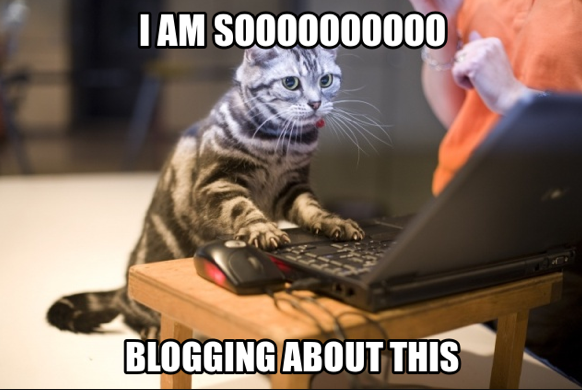
But while there are countless benefits to writers, we do still want to eventually gain traffic. Duh.
Simply blogging into the ether forever was not exactly a bright plan. So, when I kept blogging and getting nowhere, I began to study blogs. What blogs did well? What blogs garnered hundreds of comments? What blogs had tens of thousands of subscribers? What were they doing that I could learn from?
Elements of a Great Blog

Countless people start blogs that just get left abandoned in cyberspace, yet the elements of an excellent blog are pretty simple. If your blog is not doing well, often some small changes can make a huge difference.
Simple is Best
Content does matter, but packaging is key. We could have a blog so brilliant angels weep, but if no one reads it?
Yeah.
We must always remember that a blog is for the reader and not for us. When I started out, I became far too fascinated with all the cool layouts and color-schemes. When I was writing my blog, I was in the dashboard area which is, of course, black letters on a white page.
Though I thought that black page with red lettering was so edgy and dark and cool, I might as well have been tossing my readers’ eyes into a digital iron maiden.
Simple and clean is best. Our content is what should be the focus, not a bunch of colorful doodads. Remember to also test how your blog looks on a smartphone. Get an idea of how the post looks on any number of devices your reader might use.
The background we choose for a computer, might be a nightmare when trying to read on a phone.
Break Up that Space
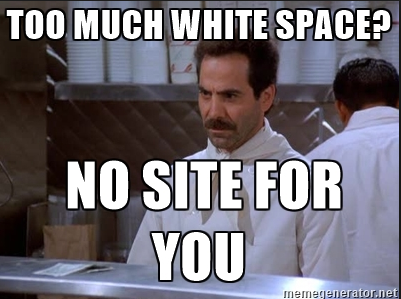
Many people don’t truly read blogs, they scan them. Yes, my blogs go longer because often I also give examples (I.e. the post about great description). But, because I use bullet points, those who simply want to scan can gain plenty (and the examples are there for folks who want more).
But I have seem comparably short blogs (500 words) that appeared more daunting than my 1300 word posts simply because the writer failed to break up the text. They left NO white space.
Bullet points, white space, headers, and photographs are key. When we have huge blocks of text in 10 point font? Many potential readers will just move on.
Keep Blogging

Many people start a blog then quit before they ever get to enjoy a harvest. Blogs take time. We can either keep pouring our energy into instant gratification (Facebook) or we can be patient.
Eventually a blog that is generating thousands of hits per day is not generating those visits off the post for that day. Rather, search engines reward attendance. Additionally, evergreen content (content that is always salient) is being picked up through web searches. This is why building archives is extremely valuable.
I still gain new followers from posts I published years ago.
And the truth is, when my blog started being successful was right about the time that I’d accumulated a substantial archive (around 200 posts). Then I was no longer at the mercy of catching attention with the one post just published, I was beginning to gain ROI from the other 199 posts. I started enjoying compounded returns.

Blogging is about appreciating the long tail, but frankly so is being an author. Just like most bloggers aren’t going to get fame and success with one post, most writers won’t hit it big with one book. We must learn to keep our heads down, to keep putting one foot in front of the other and trust the process.
There is so much more to having a great author blog, so I hope you will check out my Blogging for Authors class!
What are your thoughts? Do you see posts written on wild backgrounds and weird fonts and just run away? Have you ever run across a great post, only to realize the blog had been abandoned?
I LOVE hearing from you!
To prove it and show my love, for the month of AUGUST, everyone who leaves a comment I will put your name in a hat. If you comment and link back to my blog on your blog, you get your name in the hat twice. What do you win? The unvarnished truth from yours truly. I will pick a winner once a month and it will be a critique of the first 20 pages of your novel, or your query letter, or your synopsis (5 pages or less).
Check out the other NEW classes below! Now including a log-line class! Can you tell me what your book is about in ONE sentence? If you can’t SIGN UP.
All W.A.N.A. classes are on-line and all you need is an internet connection. Recordings are included in the class price.
Upcoming Classes
Blogging for Authors (August 26th)
This class will teach you all you need to know to start an author blog good for going the distance. Additionally I would also recommend the class offered earlier that same week (August 22nd) Branding for Authors to help you with the BIG picture. These classes will benefit you greatly because most blogs will fail because writers waste a lot of time with stuff that won’t work and never will and that wastes a lot of time.
I am here to help with that 😉 .
Bullies & Baddies—Understanding the Antagonist September 2nd–September 2nd
All fiction must have a core antagonist. The antagonist is the reason for the story problem, but the term “antagonist” can be highly confusing. Without a proper grasp of how to use antagonists, the plot can become a wandering nightmare for the author and the reader.
This class will help you understand how to create solid story problems (even those writing literary fiction) and then give you the skills to layer conflict internally and externally.
Bullies & Baddies—Understanding the Antagonist Gold
This is a personal workshop to make sure you have a clear story problem. And, if you don’t? I’ll help you create one and tell the story you want to tell. This is done by phone/virtual classroom and by appointment. Expect to block off at least a couple hours.
Your Story in a Sentence—Crafting Your Log-Line
September 7th
Log-lines are crucial for understanding the most important detail, “WHAT is the story ABOUT?” If we can’t answer this question in a single sentence? Brain surgery with a spork will be easier than writing a synopsis. Pitching? Querying? A nightmare. Revisions will also take far longer and can be grossly ineffective.
As authors, we tend to think that EVERY detail is important or others won’t “get” our story. Not the case.
If we aren’t pitching an agent, the log-line is incredibly beneficial for staying on track with a novel or even diagnosing serious flaws within the story before we’ve written an 80,000 word disaster. Perhaps the protagonist has no goal or a weak goal. Maybe the antagonist needs to be stronger or the story problem clearer.
In this one-hour workshop, I will walk you through how to encapsulate even the most epic of tales into that dreadful “elevator pitch.” We will cover the components of a strong log-line and learn red flags telling us when we need to dig deeper. The last hour of class we will workshop log-lines.
The first ten signups will be used as examples that we will workshop in the second hour of class. So get your log-line fixed for FREE by signing up ASAP.
For those who need help building a platform and keeping it SIMPLE, pick up a copy of my latest social media/branding book Rise of the Machines—Human Authors in a Digital World on AMAZON, iBooks, or Nook.
Faces of Facebook—Is Technology Killing Your Muse?
Posted by Author Kristen Lamb in Social Media Platform, Writing on August 17, 2016

Image via Flickr Creative Commons, courtesy of David Rogers
We live in a brand new age for humans. Technology has fundamentally altered every aspect of our lives and offered writers countless opportunities and advantages. Yet, as the French philosopher Paul Virilio once said, “When you invent the ship, you also invent the shipwreck.”
Before we talk further, I want to be clear. Writers benefit greatly from being on-line and it is next to impossible to be successful without a solid on-line brand. Yet, one of the reasons I became a social media expert instead of pursuing fiction was I saw far too many gurus pushing tactics that required way too much devotion to being on-line.
Chasing trends and algorithmic alchemy requires a lot of energy better spent writing books. We actually don’t need to be on-line that much to have an amazing brand.
Yet, let’s be honest.
Many of us spend a lot of time on-line that has nothing to do with building a brand. We are all guilty. We sit and chat on Facebook, laugh at memes, or—sighs—get drawn into political debate (and those never end well).
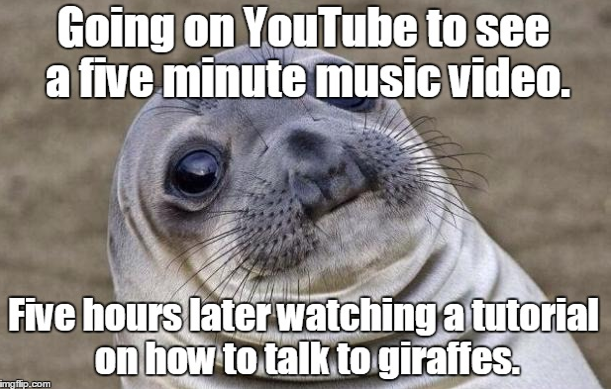
We have become a world addicted to instant gratification, distraction and time-filling/time-wasting. But what impact is this having on our ability to write?
The biggest impact is the obvious one. TIME. Many people believe they simply don’t have enough time, yet if we added up every micro-visit to social media? It would actually be a significant chunk. But that is the low-hanging fruit. Today I want to explore what technology addiction is doing to the muse.
I cannot help but thinking of all those Faces of Meth images, where we see the one picture before meth of a healthy person who has all his teeth versus a couple years later when the same person is sickly, sunken, and looks twenty years older. Is this what we are doing to the muse?

Image courtesy of MattysFlicks via Flickr Creative Commons.
Meth abuse is devastating because of a myriad of reasons, but almost all the effects are caused because the user is in a constant state of hyper-stimulation. This hyper-stimulation comes at a cost. Users forget to take care of themselves. They don’t eat or sleep and if they do eat, it is usually foods high in sugar.
Since the drug wears out the dopamine producing areas of the brain, the user requires higher and higher dosages to get the same high (and to avoid the low lows that inevitably follow).
When we are hyper-stimulated constantly on-line aren’t we doing the same thing to the muse? She needs care. She needs rest. And she needs a diet that consists of more than kitten videos and click-bait. If not, she can become yet another among the Faces of Meth Facebook.
Being Bored Can Be GOOD for Us
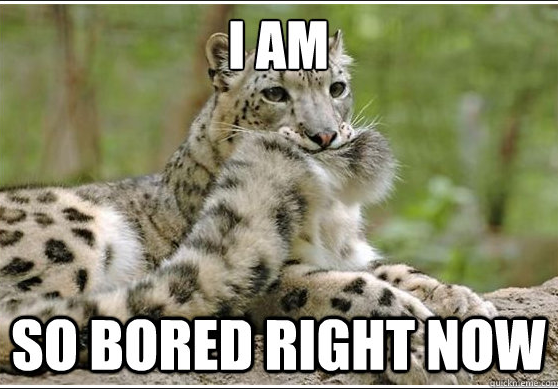
Boredom is a necessary and vital ingredient for creativity. It gives the brain time to wander, to reflect, to make connections previously unexplored. It sparks divergent thinking which is the beating heart of innovation.
The problem with constantly consuming the content of others with no downtime is that the brain cannot take the ideas it’s gathered and refashion them like Legos into something unique and new.
So yes, being online can have benefits.
We read a lot of blogs or articles that captivate us and inform us. Articles that contain seeds of story inspiration. But, if we fail to ever unplug, then that article about the murder suspect in Florida found biting his victim’s face off fails to ever germinate into the world’s next runaway-hit zombie series.
What Are We Missing?
Last time we talked about how to use description. All novels require it and good description goes beyond the one-dimensional. But to use description well, we must immerse ourselves in a three-dimensional world that has authentic intimacy.
We simply cannot get that on-line.
How much of the world are we missing because we are sitting in an airport scanning Instagram instead of people watching? Are we taking time to absorb, process, question and explore what is around us? Or are we tapping our phone like a crack addicted gerbil in a lab?
If we are walking through the park, eyes on the screen, can we truly experience the world around us? The stuff that is below the surface that no image could hope to capture. Not merely the color of the sky, but the emotion of it, the meaning of it.
Crucial Conversations & Intimacy
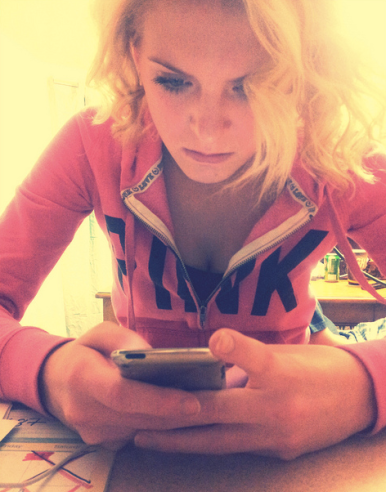
Image via Pink’s Galaxy Flickr Creative Commons
Psychology Today had an article The New Menage a Trois that explored how tech is sabotaging intimacy and ruining relationships. The article asserted that many of the moments that connect us in relationships are born in the pauses.
For married couples, the twenty minutes before dinner is ready matters. Maybe it is one comment that garners a laugh that leads into a discussion and that all leads to a greater degree of intimacy with the other person. Bonding time, so to speak.
But how many times are we filling those pauses with a quick check of e-mail? A scan of Facebook? How many times have we been in a restaurant and we instantly spotted the married couple because instead of being enthralled in conversation? Both were staring at a screen.
What do we writers use to generate conflict? Human interaction. If we are minimizing how much interaction we have, insulating ourselves from conflict and discourse, then we become distant from the emotional aspect of the human experience.
Empathy Check
Great writers have the ability to empathize with a myriad of characters. Sex, gender, age, or species (for the sci-fi folks) all become real simply because the author can understand and share the feelings of another. Empathy is fueled by noticing and listening.
If we are listening to iTunes in line at Walmart, we are checked out. If, instead, we unplugged, we might notice the stocker with the carefully hidden gang tattoos, the lines around the eyes for someone far too young, or the jagged scar tucked under the high collar. We might become curious and fill in the blanks of this unspoken life and give it voice, meaning and immortality.
Handle With Care
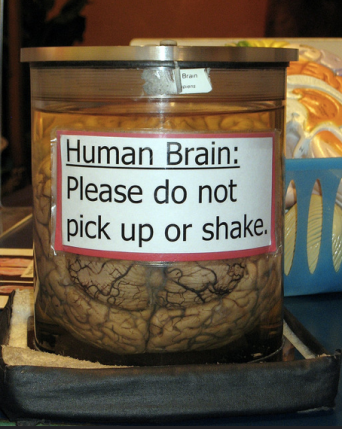
Image via Flickr Creative Commons courtesy of Steve and Shanon Lawson
Our muse is the sensitive part of our soul and it must be handled with care. Embrace quiet. Embrace alone time. Ignore the siren’s song of a world that tells us to be busy, busy, busy. All things in moderation.
We can enjoy the good parts of technology, but it will take self-discipline to maintain a healthy boundary with it. Use timers if you have to. The next time you are bored waiting in a car, interrupt that urge to scan social media, and instead look up. Look around. What wonders do you behold?
Do you think your muse has become one of the Faces of Facebook? Are you struggling to find connectedness? Are you noticing you are too “checked out”? That maybe you are missing the depth and details because of too much on-line time? Hey, I struggle too so while I have one finger pointed at y’all, three are pointed at me, LOL. What are your thoughts?
I LOVE hearing from you!
To prove it and show my love, for the month of AUGUST, everyone who leaves a comment I will put your name in a hat. If you comment and link back to my blog on your blog, you get your name in the hat twice. What do you win? The unvarnished truth from yours truly. I will pick a winner once a month and it will be a critique of the first 20 pages of your novel, or your query letter, or your synopsis (5 pages or less).
Check out the other NEW classes below! Now including a log-line class! Can you tell me what your book is about in ONE sentence? If you can’t SIGN UP.
All W.A.N.A. classes are on-line and all you need is an internet connection. Recordings are included in the class price.
Upcoming Classes
Blogging for Authors (August 26th)
This class will teach you all you need to know to start an author blog good for going the distance. Additionally I would also recommend the class offered earlier that same week (August 22nd) Branding for Authors to help you with the BIG picture. These classes will benefit you greatly because most blogs will fail because writers waste a lot of time with stuff that won’t work and never will and that wastes a lot of time.
I am here to help with that 😉 .
Bullies & Baddies—Understanding the Antagonist September 2nd–September 2nd
All fiction must have a core antagonist. The antagonist is the reason for the story problem, but the term “antagonist” can be highly confusing. Without a proper grasp of how to use antagonists, the plot can become a wandering nightmare for the author and the reader.
This class will help you understand how to create solid story problems (even those writing literary fiction) and then give you the skills to layer conflict internally and externally.
Bullies & Baddies—Understanding the Antagonist Gold
This is a personal workshop to make sure you have a clear story problem. And, if you don’t? I’ll help you create one and tell the story you want to tell. This is done by phone/virtual classroom and by appointment. Expect to block off at least a couple hours.
Your Story in a Sentence—Crafting Your Log-Line
September 7th
Log-lines are crucial for understanding the most important detail, “WHAT is the story ABOUT?” If we can’t answer this question in a single sentence? Brain surgery with a spork will be easier than writing a synopsis. Pitching? Querying? A nightmare. Revisions will also take far longer and can be grossly ineffective.
As authors, we tend to think that EVERY detail is important or others won’t “get” our story. Not the case.
If we aren’t pitching an agent, the log-line is incredibly beneficial for staying on track with a novel or even diagnosing serious flaws within the story before we’ve written an 80,000 word disaster. Perhaps the protagonist has no goal or a weak goal. Maybe the antagonist needs to be stronger or the story problem clearer.
In this one-hour workshop, I will walk you through how to encapsulate even the most epic of tales into that dreadful “elevator pitch.” We will cover the components of a strong log-line and learn red flags telling us when we need to dig deeper. The last hour of class we will workshop log-lines.
The first ten signups will be used as examples that we will workshop in the second hour of class. So get your log-line fixed for FREE by signing up ASAP.
For those who need help building a platform and keeping it SIMPLE, pick up a copy of my latest social media/branding book Rise of the Machines—Human Authors in a Digital World on AMAZON, iBooks, or Nook.
